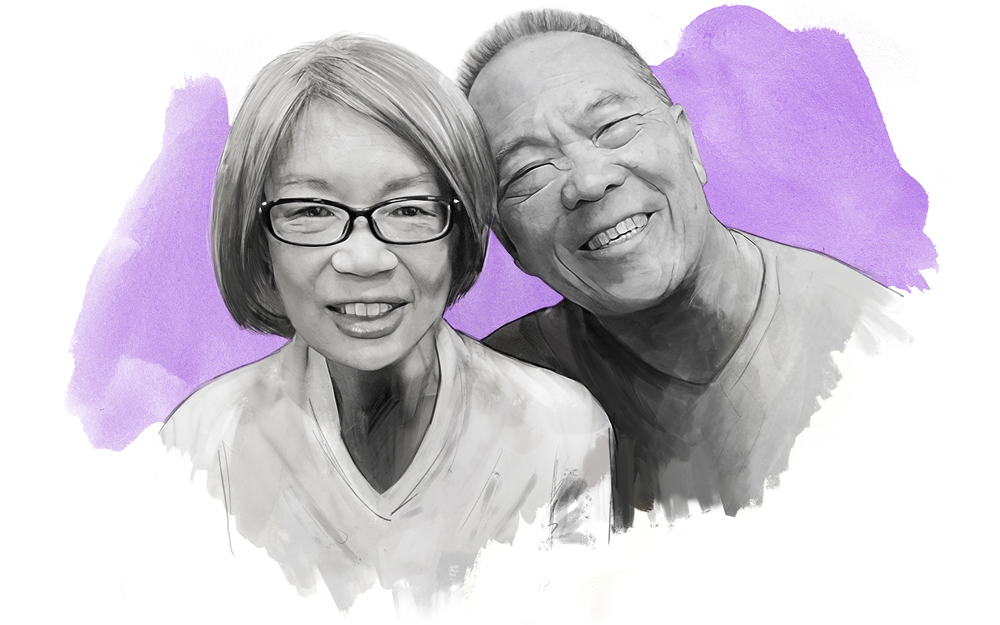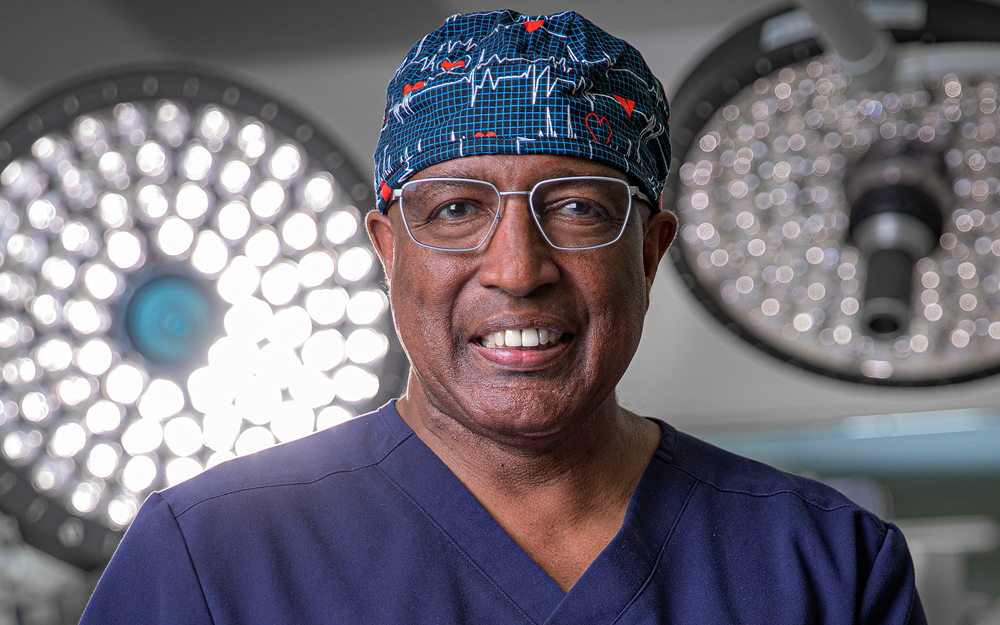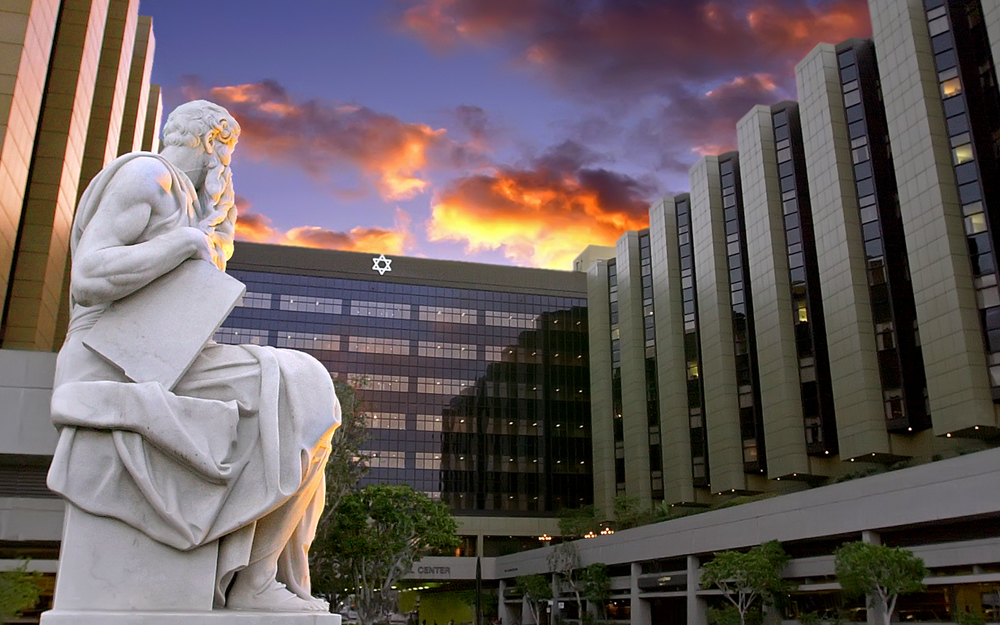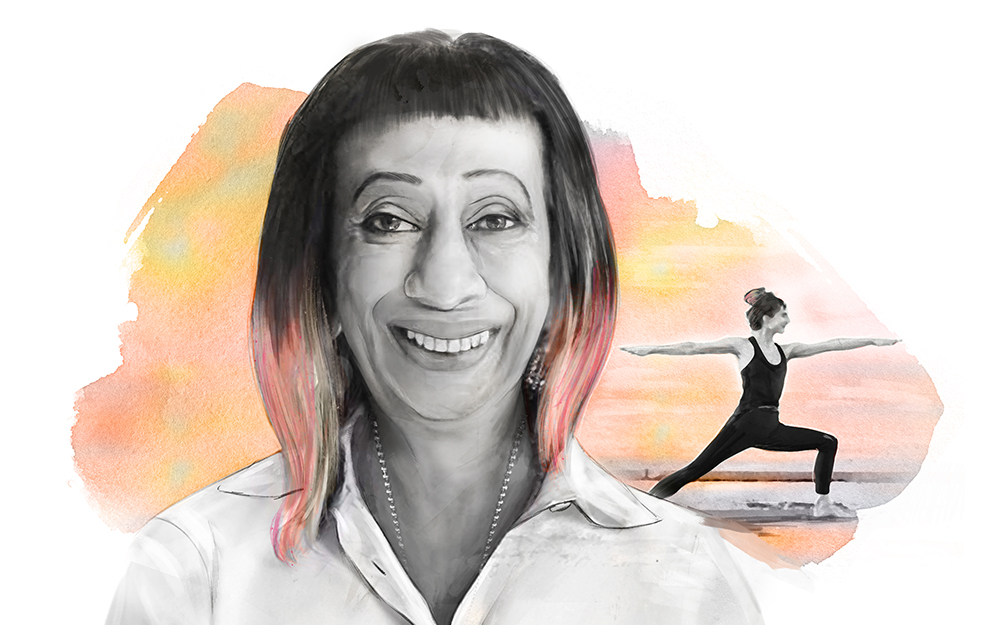Cedars-Sinai Pioneers a New Era for AI Education
Date
January 9, 2025
Credits

Date
January 9, 2025
Credits
Medical providers featured in this article

In Brief
{{cta-block}}
Artificial intelligence (AI) is rapidly permeating every corner of the healthcare landscape. The proliferation of possibilities and challenges that AI presents exceed the training offered at a typical medical school. To master the complexities of personalized medicine, predictive analytics and data management, the next generation must train in unique learning environments.
Cedars-Sinai has launched a new PhD in Health AI Program—part of the institution’s new Health Sciences University—to address these emergent issues. The robust training ground attracts diverse professionals such as video game programmers, biomedical engineers and computer scientists to collaborate on groundbreaking AI solutions. This innovative program, the first of its kind in the country, combines rigorous academic training with hands-on clinical experience, preparing students to lead the future of AI in healthcare.
"With AI booming across industries, we saw a unique opportunity to bring together students with advanced skills in computer science, math and statistics and provide them with a cutting-edge curriculum in AI embedded in a sophisticated healthcare environment," said Jason Moore, PhD, chair of the Department of Computational Biomedicine at Cedars-Sinai.
Focus on AI
Healthcare professionals are no longer asking whether AI will transform healthcare, but rather whether the field is ready for it and how it will be used. The PhD in Health AI Program empowers learners to harness AI’s capabilities while understanding its ethical implications, its limits and its power.
"Our curriculum is carefully curated to meet the demands of a changing healthcare landscape, expanding on AI fundamentals, machine learning and natural language processing," said Graciela Gonzalez-Hernandez, PhD, vice chair of research and education in the Department of Computational Biomedicine.
With coursework in computational biomedicine, AI for biomedical imaging, AI-driven devices and wearables, and AI ethics, the program prepares students to excel in their careers and to develop the next generation of AI innovations. As with all Cedars-Sinai Health Sciences University programs, students gain direct experience in a clinical environment. With at least 20 hours of clinical rotations during the first year, students in the PhD in Health AI Program will work alongside physicians, analyzing patient data and using critical decision-support tools.
"Clinical rotations are typically reserved for medical students, but an important stream of information comes from these encounters and how they are captured in the clinical record,” Gonzalez-Hernandez said. "Students in the PhD in Health AI Program learn to translate clinical data into solutions for disease processes—developing novel diagnostics and treatments, identifying root causes of disease, and creating effective tools for enhanced care delivery."
"With AI booming across industries, we saw a unique opportunity to bring together students with advanced skills in computer science, math and statistics and provide them with a cutting-edge curriculum in AI embedded in a diverse healthcare environment.”
Strength in Diversity
Cedars-Sinai is already home to more than 315 graduate students and postdoctoral scientists and 540 medical residents and fellows. In addition to the newly launched PhD in Health AI Program, the Health Sciences University has an established, accredited PhD program in Biomedical and Translational Sciences as well as master of science programs in Health Systems and in Magnetic Resonance in Medicine.
"We are building a university that will offer meaningful career paths that align with Cedars-Sinai’s mission to elevate the health status and wellbeing of patients and communities," said Shlomo Melmed, MB, ChB, executive vice president of Medicine and Health Sciences, dean of the Medical Faculty, and the Helene A. and Philip E. Hixon Distinguished Chair in Investigative Medicine at Cedars-Sinai.
Rather than focus on candidates who have an extensive resume in health sciences, Cedars-Sinai is recruiting talented learners who have demonstrated expertise in quantitative fields such as computer science, engineering, mathematics and bioinformatics.
"Bringing together students with a quantitative background to complement the biomedical sciences students in our other programs has numerous benefits," Moore said. "Cedars-Sinai’s location in one of the country’s most ethnically and culturally diverse communities provides an added advantage, attracting students from a wide array of backgrounds and perspectives.”
In addition to working in the clinical setting, doctoral candidates will complete three rotations in research laboratories under the guidance of national and international leaders in medical AI. These rotations will provide an opportunity for learners to identify an appropriate mentor for a dissertation research project designed to generate new knowledge at the intersection of AI and healthcare.
"The school’s diverse programming aims to attract the brightest minds from within and outside of medicine and invites them to devote their careers to solving complex disease-based problems," said Jeffrey A. Golden, MD, executive vice dean of Research and Education, director of the Burns and Allen Research Institute, and the Linda and Jim Lippman Distinguished Chair in Academic Medicine at Cedars-Sinai. "By pairing the best candidates with world-renowned experts who are invested in their education, we will equip students with the skills they need to shape the future of healthcare."
Active Learning
The PhD in Health AI Program aims to ensure students are strong in the fundamentals of AI applications in medicine. The groundbreaking curriculum is designed around active learning, where faculty facilitate learning by teaching students how to think, problem-solve and manage big data and then provide them with the methodology to make their visions a reality. Graduates of the program will have the necessary skills to develop and deploy AI algorithms that enhance patient care, improve clinical workflows and drive advances in medical research.
"The reasoning that leads to creative solutions is a learned skill. Our goal is to cultivate learners who are not only knowledgeable but also creative, collaborative and adaptable," said Gonzalez-Hernandez. Learners benefit from open-ended projects that focus on a current health problem, an open question or a limitation from a prior approach. They explore and design solutions with tools provided in class and co-author papers presenting their findings in peer-reviewed journals.
The Health Sciences University’s PhD in Health AI Program is fully funded. Cedars-Sinai covers the education costs for four years of study. “We’re not just investing in students’ education; we’re investing in the health of our communities,” said Gonzalez-Hernandez.
By removing financial barriers, Cedars-Sinai can attract the brightest minds to this field and empower them to make a lasting impact. And just as our clinicians focus on patient-centered care, the PhD in Health AI Program emphasizes a learner-centered philosophy.
"Learners bring their own knowledge, past experiences, education and ideas and discover how to expand them into new directions by working alongside world-renowned experts in AI and healthcare," said Gonzalez-Hernandez.
Dive into Cedars-Sinai Health Sciences University’s PhD in Health AI Program curriculum.
{{column-start}}
Health Sciences University at a Glance
Building on Cedars-Sinai’s legacy of fostering continuing education, the healthcare organization’s newly established Health Sciences University offers robust career paths in graduate and medical education as well as specialized vocational programs, including:
- Graduate medical education: Residents and fellows develop clinical and professional competence under the guidance and supervision of acclaimed faculty.
- Graduate School of Biomedical Sciences: Graduate research programs offer unparalleled training opportunities that prepare students to serve as scientists in clinical settings, with a foundation in value-based healthcare delivery.
- Chuck Lorre Allied Health School: Emerging professionals choose from a suite of programs to advance their technical skills in respiratory therapy, pharmacy technician training, clinical laboratory science, MRI technology, radiologic technology or echo/cardio technology—areas identified as the most in-demand staffing needs in hospital settings.
- Professional training programs: Health Sciences University offers nondegree educational certifications, formal trainings, internships and other ongoing opportunities to benefit students and professionals at all levels of their careers.
Explore Cedars-Sinai Health Sciences University to learn more.
{{column-end}}
Health Sciences University at a Glance
Building on Cedars-Sinai’s legacy of fostering continuing education, the healthcare organization’s newly established Health Sciences University offers robust career paths in graduate and medical education as well as specialized vocational programs, including:
- Graduate medical education: Residents and fellows develop clinical and professional competence under the guidance and supervision of acclaimed faculty.
- Graduate School of Biomedical Sciences: Graduate research programs offer unparalleled training opportunities that prepare students to serve as scientists in clinical settings, with a foundation in value-based healthcare delivery.
- Chuck Lorre Allied Health School: Emerging professionals choose from a suite of programs to advance their technical skills in respiratory therapy, pharmacy technician training, clinical laboratory science, MRI technology, radiologic technology or echo/cardio technology—areas identified as the most in-demand staffing needs in hospital settings.
- Professional training programs: Health Sciences University offers nondegree educational certifications, formal trainings, internships and other ongoing opportunities to benefit students and professionals at all levels of their careers.
Explore Cedars-Sinai Health Sciences University to learn more.





